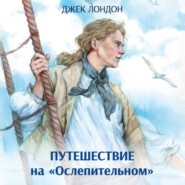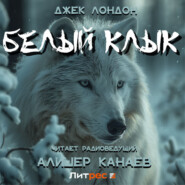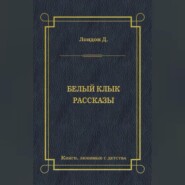По всем вопросам обращайтесь на: info@litportal.ru
(©) 2003-2024.
✖
The House of Pride, and Other Tales of Hawaii
Настройки чтения
Размер шрифта
Высота строк
Поля
From one of the rocky lairs calabashes were produced and passed round. The calabashes were filled with the fierce distillation of the root of the ti-plant; and as the liquid fire coursed through them and mounted to their brains, they forgot that they had once been men and women, for they were men and women once more. The woman who wept scalding tears from open eye-pits was indeed a woman apulse with life as she plucked the strings of an ukulele and lifted her voice in a barbaric love-call such as might have come from the dark forest-depths of the primeval world. The air tingled with her cry, softly imperious and seductive. Upon a mat, timing his rhythm to the woman’s song Kiloliana danced. It was unmistakable. Love danced in all his movements, and, next, dancing with him on the mat, was a woman whose heavy hips and generous breast gave the lie to her disease-corroded face. It was a dance of the living dead, for in their disintegrating bodies life still loved and longed. Ever the woman whose sightless eyes ran scalding tears chanted her love-cry, ever the dancers of love danced in the warm night, and ever the calabashes went around till in all their brains were maggots crawling of memory and desire. And with the woman on the mat danced a slender maid whose face was beautiful and unmarred, but whose twisted arms that rose and fell marked the disease’s ravage. And the two idiots, gibbering and mouthing strange noises, danced apart, grotesque, fantastic, travestying love as they themselves had been travestied by life.
But the woman’s love-cry broke midway, the calabashes were lowered, and the dancers ceased, as all gazed into the abyss above the sea, where a rocket flared like a wan phantom through the moonlit air.
“It is the soldiers,” said Koolau. “Tomorrow there will be fighting. It is well to sleep and be prepared.”
The lepers obeyed, crawling away to their lairs in the cliff, until only Koolau remained, sitting motionless in the moonlight, his rifle across his knees, as he gazed far down to the boats landing on the beach.
The far head of Kalalau Valley had been well chosen as a refuge. Except Kiloliana, who knew back-trails up the precipitous walls, no man could win to the gorge save by advancing across a knife-edged ridge. This passage was a hundred yards in length. At best, it was a scant twelve inches wide. On either side yawned the abyss. A slip, and to right or left the man would fall to his death. But once across he would find himself in an earthly paradise. A sea of vegetation laved the landscape, pouring its green billows from wall to wall, dripping from the cliff-lips in great vine-masses, and flinging a spray of ferns and air-plants in to the multitudinous crevices. During the many months of Koolau’s rule, he and his followers had fought with this vegetable sea. The choking jungle, with its riot of blossoms, had been driven back from the bananas, oranges, and mangoes that grew wild. In little clearings grew the wild arrowroot; on stone terraces, filled with soil scrapings, were the taro patches and the melons; and in every open space where the sunshine penetrated were papaia trees burdened with their golden fruit.
Koolau had been driven to this refuge from the lower valley by the beach. And if he were driven from it in turn, he knew of gorges among the jumbled peaks of the inner fastnesses where he could lead his subjects and live. And now he lay with his rifle beside him, peering down through a tangled screen of foliage at the soldiers on the beach. He noted that they had large guns with them, from which the sunshine flashed as from mirrors. The knife-edged passage lay directly before him. Crawling upward along the trail that led to it he could see tiny specks of men. He knew they were not the soldiers, but the police. When they failed, then the soldiers would enter the game.
He affectionately rubbed a twisted hand along his rifle barrel and made sure that the sights were clean. He had learned to shoot as a wild-cattle hunter on Niihau, and on that island his skill as a marksman was unforgotten. As the toiling specks of men grew nearer and larger, he estimated the range, judged the deflection of the wind that swept at right angles across the line of fire, and calculated the chances of overshooting marks that were so far below his level. But he did not shoot. Not until they reached the beginning of the passage did he make his presence known. He did not disclose himself, but spoke from the thicket.
“What do you want?” he demanded.
“We want Koolau, the leper,” answered the man who led the native police, himself a blue-eyed American.
“You must go back,” Koolau said.
He knew the man, a deputy sheriff, for it was by him that he had been harried out of Niihau, across Kauai, to Kalalau Valley, and out of the valley to the gorge.
“Who are you?” the sheriff asked.
“I am Koolau, the leper,” was the reply.
“Then come out. We want you. Dead or alive, there is a thousand dollars on your head. You cannot escape.”
Koolau laughed aloud in the thicket.
“Come out!” the sheriff commanded, and was answered by silence.
He conferred with the police, and Koolau saw that they were preparing to rush him.
“Koolau,” the sheriff called. “Koolau, I am coming across to get you.”
“Then look first and well about you at the sun and sea and sky, for it will be the last time you behold them.”
“That’s all right, Koolau,” the sheriff said soothingly. “I know you’re a dead shot. But you won’t shoot me. I have never done you any wrong.”
Koolau grunted in the thicket.
“I say, you know, I’ve never done you any wrong, have I?” the sheriff persisted.
“You do me wrong when you try to put me in prison,” was the reply. “And you do me wrong when you try for the thousand dollars on my head. If you will live, stay where you are.”
“I’ve got to come across and get you. I’m sorry. But it is my duty.”
“You will die before you get across.”
The sheriff was no coward. Yet was he undecided. He gazed into the gulf on either side and ran his eyes along the knife-edge he must travel. Then he made up his mind.
“Koolau,” he called.
But the thicket remained silent.
“Koolau, don’t shoot. I am coming.”
The sheriff turned, gave some orders to the police, then started on his perilous way. He advanced slowly. It was like walking a tight rope. He had nothing to lean upon but the air. The lava rock crumbled under his feet, and on either side the dislodged fragments pitched downward through the depths. The sun blazed upon him, and his face was wet with sweat. Still he advanced, until the halfway point was reached.
“Stop!” Koolau commanded from the thicket. “One more step and I shoot.”
The sheriff halted, swaying for balance as he stood poised above the void. His face was pale, but his eyes were determined. He licked his dry lips before he spoke.
“Koolau, you won’t shoot me. I know you won’t.”
He started once more. The bullet whirled him half about. On his face was an expression of querulous surprise as he reeled to the fall. He tried to save himself by throwing his body across the knife-edge; but at that moment he knew death. The next moment the knife-edge was vacant. Then came the rush, five policemen, in single file, with superb steadiness, running along the knife-edge. At the same instant the rest of the posse opened fire on the thicket. It was madness. Five times Koolau pulled the trigger, so rapidly that his shots constituted a rattle. Changing his position and crouching low under the bullets that were biting and singing through the bushes, he peered out. Four of the police had followed the sheriff. The fifth lay across the knife-edge still alive. On the farther side, no longer firing, were the surviving police. On the naked rock there was no hope for them. Before they could clamber down Koolau could have picked off the last man. But he did not fire, and, after a conference, one of them took off a white undershirt and waved it as a flag. Followed by another, he advanced along the knife-edge to their wounded comrade. Koolau gave no sign, but watched them slowly withdraw and become specks as they descended into the lower valley.
Two hours later, from another thicket, Koolau watched a body of police trying to make the ascent from the opposite side of the valley. He saw the wild goats flee before them as they climbed higher and higher, until he doubted his judgment and sent for Kiloliana, who crawled in beside him.
“No, there is no way,” said Kiloliana.
“The goats?” Koolau questioned.
“They come over from the next valley, but they cannot pass to this. There is no way. Those men are not wiser than goats. They may fall to their deaths. Let us watch.”
“They are brave men,” said Koolau. “Let us watch.”
Side by side they lay among the morning-glories, with the yellow blossoms of the hau dropping upon them from overhead, watching the motes of men toil upward, till the thing happened, and three of them, slipping, rolling, sliding, dashed over a cliff-lip and fell sheer half a thousand feet.
Kiloliana chuckled.
“We will be bothered no more,” he said.
“They have war guns,” Koolau made answer. “The soldiers have not yet spoken.”
In the drowsy afternoon, most of the lepers lay in their rock dens asleep. Koolau, his rifle on his knees, fresh-cleaned and ready, dozed in the entrance to his own den. The maid with the twisted arms lay below in the thicket and kept watch on the knife-edge passage. Suddenly Koolau was startled wide awake by the sound of an explosion on the beach. The next instant the atmosphere was incredibly rent asunder. The terrible sound frightened him. It was as if all the gods had caught the envelope of the sky in their hands and were ripping it apart as a woman rips apart a sheet of cotton cloth. But it was such an immense ripping, growing swiftly nearer. Koolau glanced up apprehensively, as if expecting to see the thing. Then high up on the cliff overhead the shell burst in a fountain of black smoke. The rock was shattered, the fragments falling to the foot of the cliff.
Koolau passed his hand across his sweaty brow. He was terribly shaken. He had had no experience with shell-fire, and this was more dreadful than anything he had imagined.
“One,” said Kapahei, suddenly bethinking himself to keep count.
A second and a third shell flew screaming over the top of the wall, bursting beyond view. Kapahei methodically kept the count. The lepers crowded into the open space before the caves. At first they were frightened, but as the shells continued their flight overhead the leper folk became reassured and began to admire the spectacle.
The two idiots shrieked with delight, prancing wild antics as each air-tormenting shell went by. Koolau began to recover his confidence. No damage was being done. Evidently they could not aim such large missiles at such long range with the precision of a rifle.
But a change came over the situation. The shells began to fall short. One burst below in the thicket by the knife-edge. Koolau remembered the maid who lay there on watch, and ran down to see. The smoke was still rising from the bushes when he crawled in. He was astounded. The branches were splintered and broken. Where the girl had lain was a hole in the ground. The girl herself was in shattered fragments. The shell had burst right on her.
First peering out to make sure no soldiers were attempting the passage, Koolau started back on the run for the caves. All the time the shells were moaning, whining, screaming by, and the valley was rumbling and reverberating with the explosions. As he came in sight of the caves, he saw the two idiots cavorting about, clutching each other’s hands with their stumps of fingers. Even as he ran, Koolau saw a spout of black smoke rise from the ground, near to the idiots. They were flung apart bodily by the explosion. One lay motionless, but the other was dragging himself by his hands toward the cave. His legs trailed out helplessly behind him, while the blood was pouring from his body. He seemed bathed in blood, and as he crawled he cried like a little dog. The rest of the lepers, with the exception of Kapahei, had fled into the caves.

















